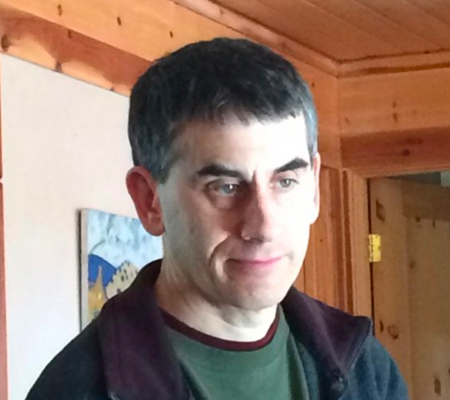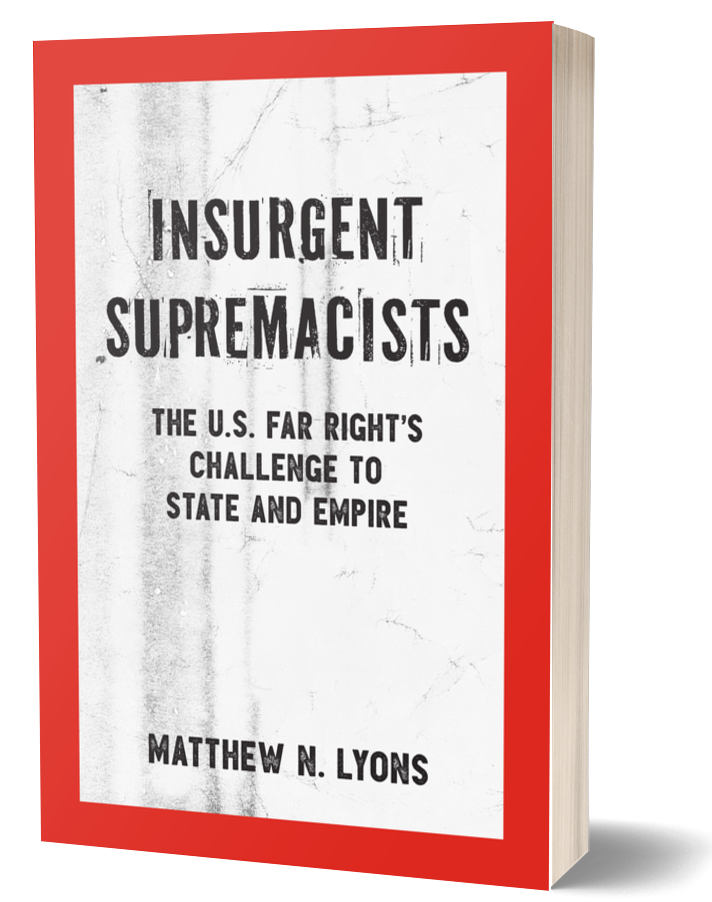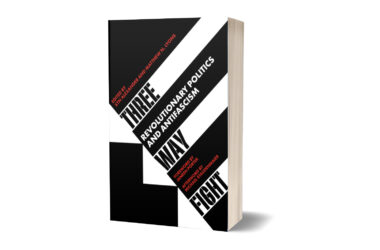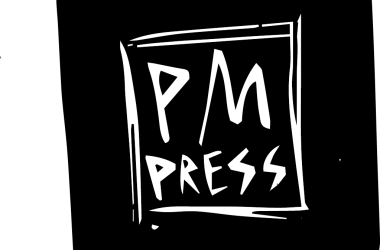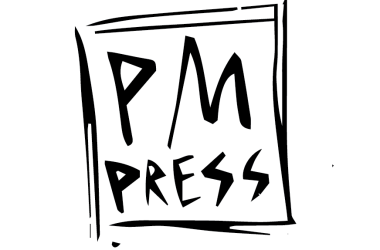By Matthew Lyons
Three Way Fight
It’s time for antifascists to stop treating the Christian right as a secondary threat.
When the U.S. Supreme Court scraps legal protection for abortion rights—using arguments that also directly threaten legal protections for homosexuality, contraception, interracial marriage, and much more—it will mark a historic victory for the Christian right. More than anyone else, Christian rightists have worked steadily and carefully for almost half a century to reach this goal. They have done this not only because they want to stop pregnant people from making decisions about their own bodies. More broadly, Christian rightists have used abortion as a tool to rally mass support behind their larger agenda to impose patriarchal families, compulsory heterosexuality, and “God-given gender identity” on society as a whole.
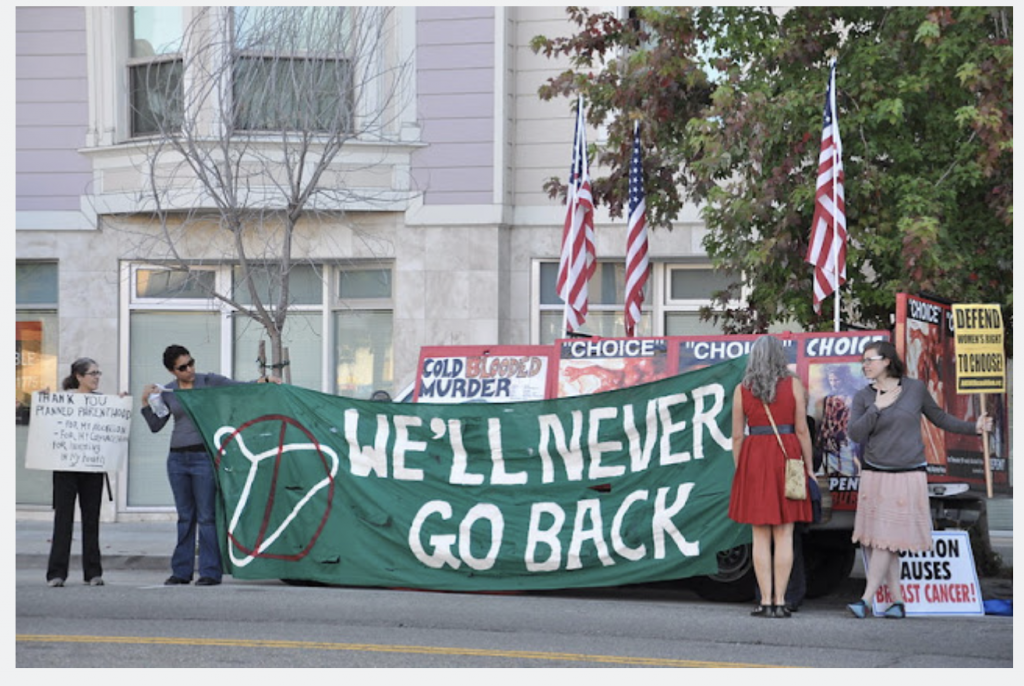
| Bay Area Coalition for Our Reproductive Rights (BACORR) clinic defense at Planned Parenthood on Valencia, San Francisco, 29 September 2011 |
The Christian right has played a long game, setting aside centuries-old theological disputes, bringing millions of people into political activism for the first time, mobilizing both wealthy patrons and independent funding streams, and gradually building a rich organizational network, from think tanks and lobbying groups to local prayer cells. The Christian right has forged and used alliances with diverse actors, including neoconservatives and laissez faire libertarians, Likudniks and conservative Islamic governments. The Christian right’s embrace of Donald Trump as a modern day “Cyrus”—an ungodly man of power who serves God’s purpose—is a model of realpolitik, and it has paid off in spades.
The Christian right has functioned as a political big tent, encompassing multiple ideological doctrines, strategies, and tactical approaches, and making room for different factions to riff off of each other without tearing each other down. Most importantly, it has encompassed both reformist and revolutionary poles of thought—a creative tension between those working to make changes within the existing political system and those who want to scrap all secular and pluralist institutions and replace the existing state with a full-on theocracy. In this dynamic, the incrementalists have had the numbers but the theocrats have been the trend setters, again and again staking out forward positions that have helped to guide and animate their more cautious comrades.
A pioneering current of theocratic politics known as Christian Reconstructionism—whose “Godly” vision includes disenfranchising women and punishing homosexuality with death by stoning—has played a pivotal role within the anti-abortion rights movement, pushing it toward more violent actions and more militant opposition to the state. Michael Bray, a Lutheran pastor who spent four years in prison for firebombing a series of reproductive health clinics in the 1980s, is a Reconstructionist. So was Paul Hill, a former Presbyterian minister who murdered a physician and his bodyguard outside a clinic in Pensacola, Florida, in 1994. So is Matt Trewhella, a Pentecostal minister and founder of Missionaries to the Preborn, who in the 1990s defended the killing of abortion providers as “justifiable homicide” and urged Christian rightists to form church-based militias.
The movement’s other leading theocratic current, New Apostolic Reformation (NAR), has combined Reconstructionism’s call for right-thinking Christians to “take dominion” over all spheres of society with authoritarian mass organizing and the Pentecostal/Charismatic belief in divine prophecy and working miracles. NAR leaders have aggressively promoted homophobic legislation, including a notorious bill in Uganda that would have made gay sex punishable by death. New Apostolics have been a dominant force in the Christian Zionist movement and have proselytized Jews aggressively in Israel and elsewhere. NAR leaders staunchly supported Donald Trump throughout his presidency and have played key roles in the fraudulent Stop The Steal campaign to overturn the results of the 2020 presidential election.
The Christian right’s theocratic wing falls squarely within my proposed definition of fascism: a revolutionary form of right-wing populism, inspired by a totalitarian vision of collective rebirth, that challenges capitalist political and cultural power while promoting economic and social hierarchy. Whether you accept that definition or not, it’s clear that Christian theocrats (a) advocate intensified forms of oppression and repression, (b) want to impose their beliefs through a comprehensive transformation of society, and (c) use scapegoating, rituals, and people’s longing for community to mobilize supporters behind their goals. Theocratic organizations are a significant force in their own right, and their role within the larger Christian right give them leverage far beyond their numbers. (One 2013 estimate puts the NAR’s U.S. membership alone at 3 million. Even if that’s off by an order of magnitude, it still dwarfs the Oath Keepers and Proud Boys combined.)
Discussions of right-wing politics are often compartmentalized by ideology. This approach treats Christian rightists separately from white nationalists and the far right, and excludes Christian right politics from many definitions of fascism. That’s better than lumping all rightists into one nebulous category, because we need to understand our opponents’ differences so we can combat them effectively. Unfortunately, in practice many antifascists treat Christian right politics as not just separate from white nationalism, but also less important. Maybe they think Christian rightists are more moderate than white nationalists, or maybe they see issues of gender and sexuality as secondary to issues of race. In this framework, the Christian right gets attention only to the extent that it has a relationship with white nationalism or the extent to which its politics are seen to be “really” about race.
Interconnections with white nationalism are important, as is segregationism’s role in fueling the Christian right’s rise in the 1970s, and the movement’s more complex racial politics today. But those aren’t the main reasons the Christian right is dangerous. For half a century, Christian rightists have consistently placed gender and sexuality—not race—at the center of their program, and those wars need to be fought on their own terms.
Let’s remember: In the 1990s, the Anti-Racist Action Network made support for abortion rights and reproductive freedom one of its four Points of Unity, and ARA activists helped defend reproductive health clinics while also confronting neonazis and racist cops. This is history we can learn from. The fight against Christian theocracy is a fight against fascism. The fight for abortion rights is a fight against fascism.
For further details and references about the Christian right, see Insurgent Supremacists, chapters 2 and 6, and Right-Wing Populism in America, chapters 11 and 12.Photo credit: By Steve Rhodes (CC BY-NC-ND 2.0), via Flickr.

